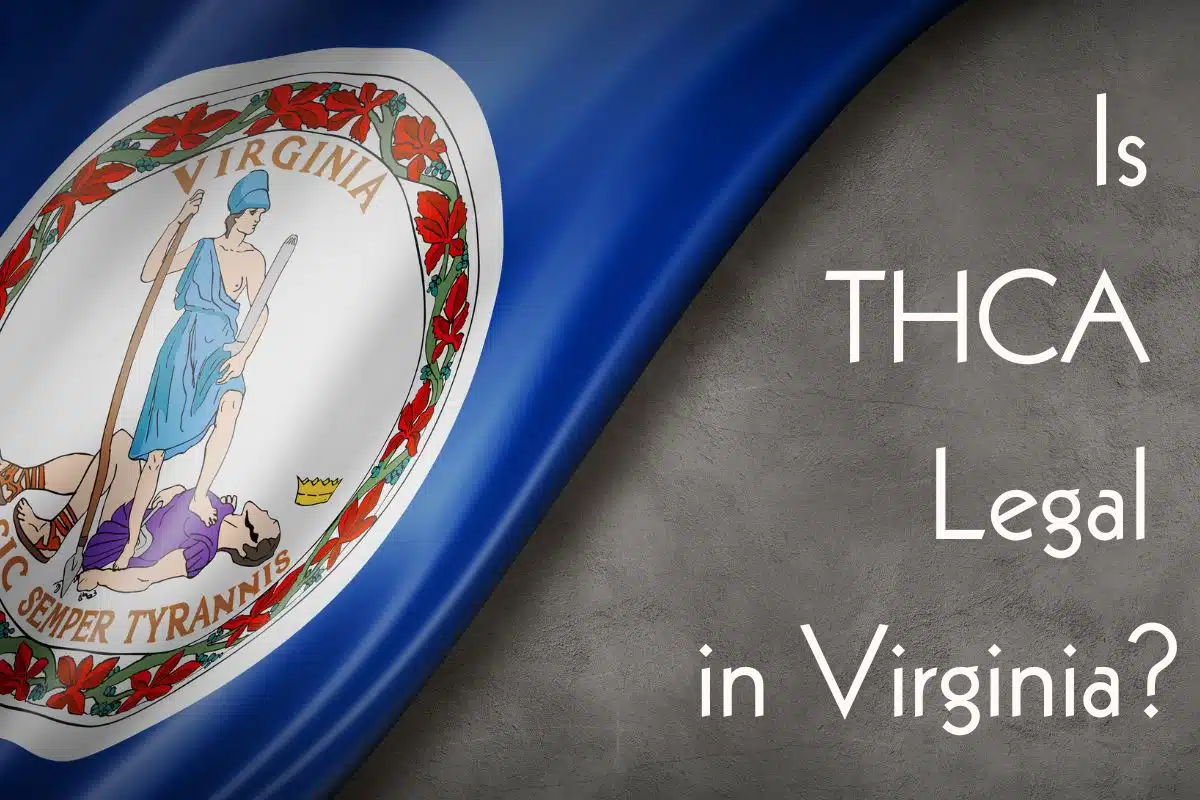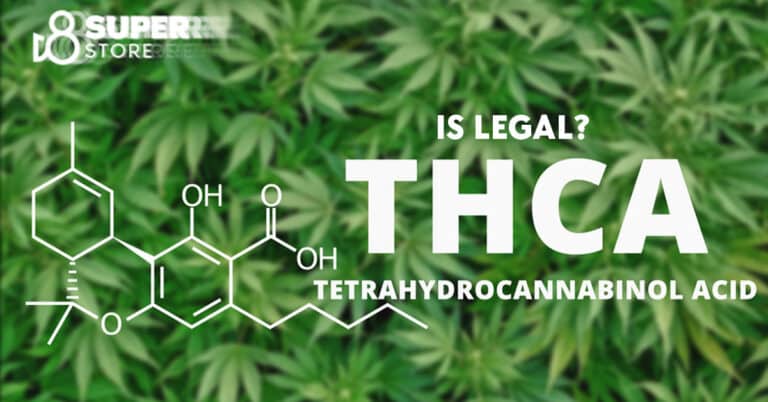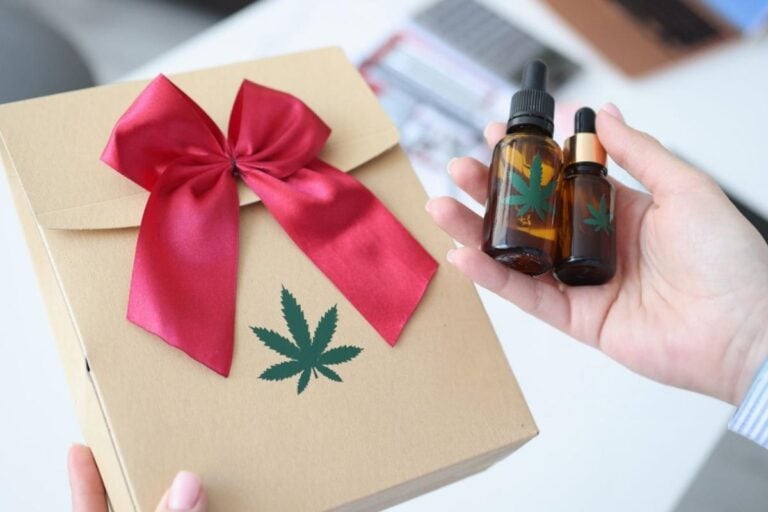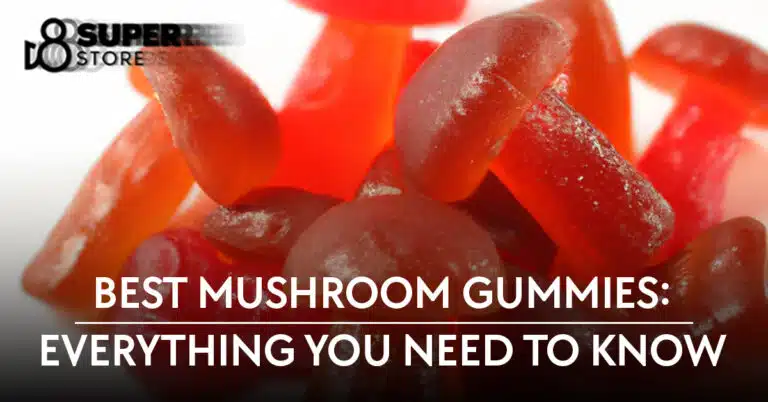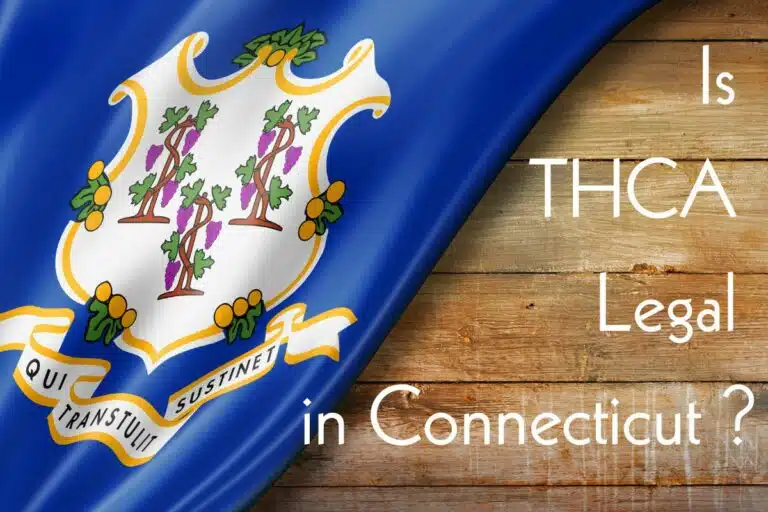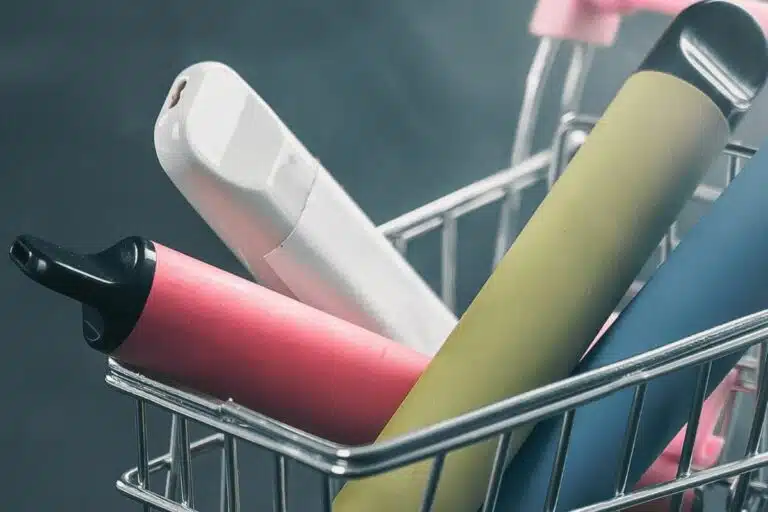Is THCa Legal in Virginia: Understanding State Cannabis Laws
Diving into Virginia’s fresh cannabis regulations can feel like stepping into a maze of “shoulds” and “should nots,” with all sorts of herb rumors flying left and right. Take a look at Tetrahydrocannabinolic acid (THCa) – picture it as the laid-back family member among the marijuana bunch, different from THC, which is the party-starter. Yet, THCa won’t send you on a trip. Thanks to Virginia’s cool attitude, there’s a new spin on THCa and THC. The state’s recent rules mean getting your green treats just got way easier. Hang tight because unlocking this legal puzzle might just revolutionize the experience for those who love their concentrates.
The shift in legislation has made it legal for you to possess and consume cannabis within the Commonwealth, thanks to the legalization measures that were signed into law. While THCa is not explicitly mentioned in most legislation, it falls under the umbrella of cannabis legalization due to its presence in raw cannabis plants. If you’re in Virginia, this means that as long as you adhere to the legal guidelines established for cannabis possession and consumption, your use of THCa is compliant with state law.
It’s important for you to note that the legalization of cannabis and its derivatives may have limitations, including amounts you can legally possess and how it can be consumed. In Virginia, legal cannabis sales are underway, and this framework includes the lawful purchase and use of products containing THCa. Since legal nuances can evolve, staying informed will help ensure that your use of cannabis and its derivatives, including THCa, remains within the confines of Virginia’s state laws.

THCa Overview
In the context of cannabis products and legality, it’s crucial for you to understand the specifics surrounding THCa, an active compound found in the cannabis plant, and how it differs from other cannabinoids.
Definition of THCa
THCa, or tetrahydrocannabinolic acid, is a non-psychoactive cannabinoid that is a precursor to delta-9 THC (tetrahydrocannabinol), the compound most commonly associated with the psychoactive effects of cannabis. In its raw form, THCa is present in the trichomes of fresh cannabis plants. When exposed to heat, THCa undergoes decarboxylation, a chemical reaction that removes a carboxyl group, converting it into the psychoactive delta-9 THC isomer.
THCa vs. Other Cannabinoids
When comparing THCa to other cannabinoids, it’s notable that THCa is distinct from delta-9 THC, despite being chemically related. Unlike delta-9 THC, THCa does not produce psychoactive effects. However, when cannabis is heated, such as through smoking, vaporizing, or cooking, THCa is converted into psychoactive delta-9 THC. This is why consuming raw cannabis doesn’t cause the “high” associated with traditionally prepared cannabis products.
Other cannabinoids include CBD (cannabidiol), which is known for its therapeutic benefits without the psychoactive effects, and CBG (cannabigerol), another non-intoxicating compound. Each cannabinoid interacts with the body’s endocannabinoid system differently, contributing to the diverse effects and benefits attributed to cannabis.
Virginia Cannabis Laws
As you navigate the evolving landscape of cannabis laws in Virginia, it’s important to understand the current legal status of both medical marijuana and recreational cannabis. Regulations are in place to manage the legality of these substances, and staying informed can ensure you remain compliant with state law.
Medical Marijuana in Virginia
Medical marijuana is legal in Virginia. As a resident, you have the opportunity to receive a recommendation from a registered practitioner and obtain a registration from the Board of Pharmacy. With this, you’re allowed to possess and use cannabis oil, which must contain at least 5 milligrams of cannabidiol (CBD) or tetrahydrocannabinolic acid (THCa) and may contain a maximum of 10 milligrams of tetrahydrocannabinol (THC). For more in-depth information on the specific regulations surrounding medical marijuana in Virginia, you may refer to the Virginia’s medical cannabis policy.
Recreational Cannabis Status
Recreational cannabis use underwent a significant change in Virginia with the passage of legalization legislation. Adults 21 years and older are allowed to possess up to one ounce of marijuana for personal use. However, the sale of recreational marijuana remains illegal as of now, and there are no established retail markets for the purchase of cannabis. This means that while it’s legal for you to possess and consume recreational marijuana within the allowable limits, purchasing it from a retailer is not yet possible. Keep an eye on updates, as this is subject to change with the introduction of new laws and regulations.
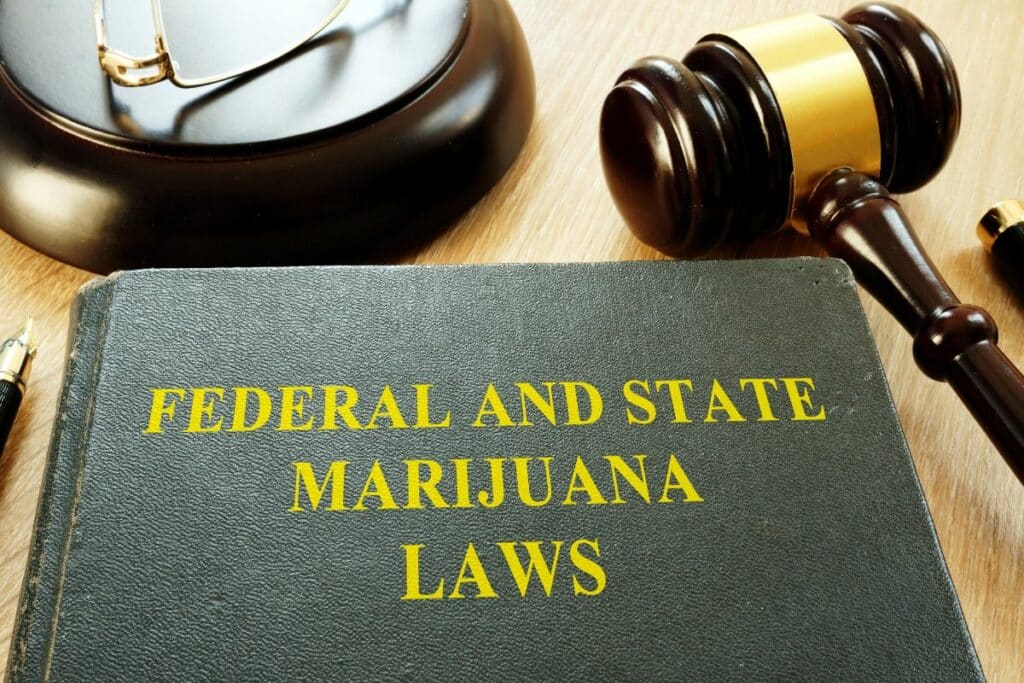
Federal and State Regulation of THCa
In your quest to understand the legal nuances surrounding THCa, it’s crucial to discern between federal mandates and the varied state laws, especially as they apply to states like Virginia. The pivotal piece of legislation affecting THCa at the federal level is the 2018 Farm Bill, while at the state level, regulations can diverge significantly.
2018 Farm Bill Implications
The 2018 Farm Bill altered the landscape of hemp regulation by removing hemp, defined as cannabis and derivatives of cannabis with extremely low concentrations of delta-9 THC (no more than 0.3% on a dry weight basis), from the list of controlled substances. This effectively legalized hemp at the federal level, but THCa is in a gray area. While THCa is not psychoactive itself, it can convert to THC, the psychoactive component. The implications of the Farm Bill suggest that as long as the hemp does not contain more than 0.3% delta-9 THC, it is federally legal. However, since THCa can convert into THC, the legal status of THCa hinges upon interpretation and specific state laws.
State Laws vs. Federal Law
At the state level, the laws can differ drastically from federal regulations. For instance, some states have their own regulatory frameworks for cannabis products, which can impact the legality of THCa. In Virginia, state hemp cultivation and research programs signal a more progressive stance towards cannabis and its derivatives. Hemp cultivation is legal, and this includes plants that may produce THCa, provided they do not exceed the 0.3% delta-9 THC threshold. However, as THCa is a precursor to THC, its legal status can be complex and at times uncertain, with different implications for possession, sale, and production across state lines. It’s important to stay informed on both federal and Virginia state laws to fully understand the legal bounds regarding THCa.
Legal Status of Hemp and Hemp Products
In Virginia, understanding the legal landscape is crucial when it comes to hemp and its derivatives. It’s essential to recognize the legal thresholds and what sets hemp apart from marijuana.
Differentiation of Hemp and Marijuana
Hemp and marijuana are both members of the Cannabis family, but they are distinct in the eyes of the law due to their tetrahydrocannabinol (THC) content. Hemp is characterized by its low THC concentration—specifically, it must contain less than 0.3% delta-9 THC on a dry weight basis to be considered legal. Conversely, marijuana typically has higher THC levels and is still federally classified as a controlled substance, although state laws may differ.
Legal Hemp-Derived Products
In Virginia, your access to hemp products is informed by these legal distinctions. The 2014 farm bill initiated a distinction by allowing states to implement programs for hemp research, with Virginia being one of the states that established such programs. Under federal law, hemp-derived products, including those containing THCa and CBDA, are legal provided they adhere to the THC threshold. However, it’s crucial for you to ensure that these products do not exceed the 0.3% THC limit to maintain their legality.
Remember, while cannabis legalization varies by state, the federal perspective pivots on the THC content, distinguishing legal hemp derivatives from illegal marijuana products. Always check the specific laws in Virginia to ensure compliance when purchasing or consuming hemp products.

Purchase and Sale of THCa in Virginia
In Virginia, the landscape for purchasing and selling THCa (tetrahydrocannabinolic acid) conforms to established legal frameworks. You have the option to engage in these activities within specific regulatory boundaries.
Where to Buy THCa
To purchase THCa in Virginia, your primary destinations are licensed dispensaries. These establishments are regulated and offer a range of cannabis-based products, including THCa. When seeking to buy THCa, ensure that the dispensary adheres to Virginia’s cannabis laws, specifically those concerning product safety and consumer access.
THCa Sales Regulations
Sales of THCa in Virginia are tightly controlled under state regulations. If you’re involved in the sale of THCa, you must follow rigorous guidelines that dictate how these transactions can occur. For instance, products containing THCa must be clearly labeled, and sales are restricted to individuals who meet age requirements. Remember that while THCa itself is a non-intoxicating compound, it can convert to THC, which is psychoactive, and hence, any sale must comply with the state’s cannabis laws.
Possession and Consumption Rules
In Virginia, specific regulations govern your ability to possess and consume THCa, reflecting a balance struck between legal accessibility and controlled use. It’s important to understand these rules to ensure you’re within the boundaries of the law.
Limits on Possession
In Virginia, you are allowed to possess cannabis-derived substances such as THCa, but there are clear limits in place. The law permits adults to possess up to one ounce of marijuana or the equivalent amount in THCa without intent to distribute. If you hold more than one ounce but not more than one pound, it is considered a civil penalty, which may result in a fine.
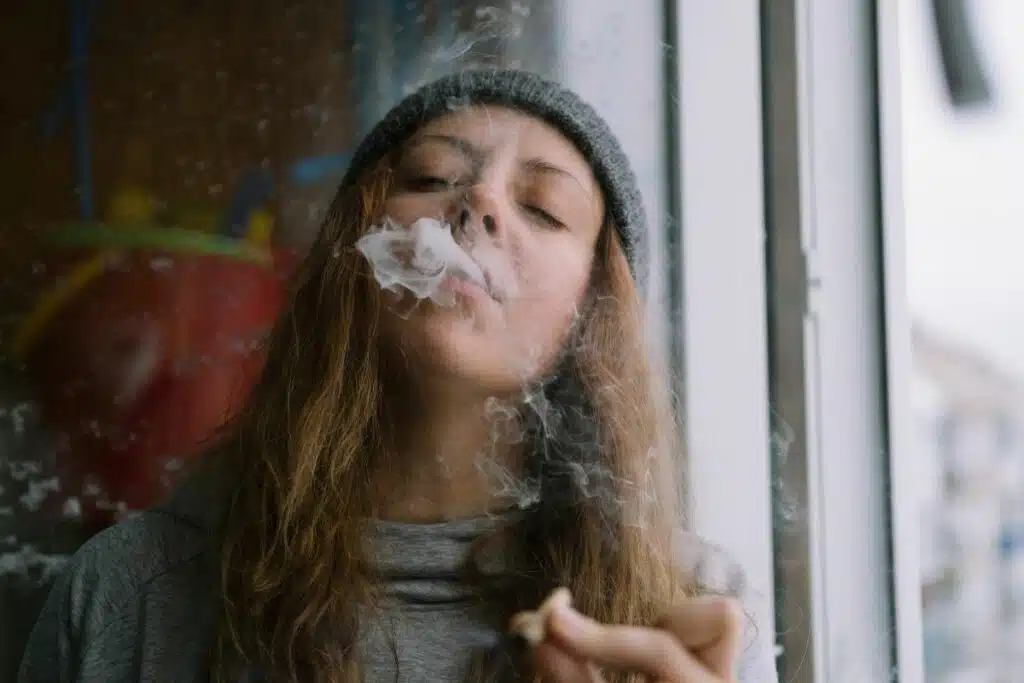
Restrictions on Consumption
When it comes to consumption, Virginia has designated areas where you cannot consume cannabis or THCa. You’re prohibited from consuming it in any public space, and doing so can lead to a penalty. Private consumption is allowed, but it’s crucial to note landlords and property owners may impose their own restrictions, which you must adhere to. Additionally, consuming THCa in a manner that affects others, such as through second-hand smoke, can also have legal repercussions.
Impact of Legislation on Cannabinoid Market
Legislation plays a crucial role in shaping the market for cannabinoids, influencing everything from product availability to research and development.
Influence of THCa Legality on Cannabinoid Products
THCa, or tetrahydrocannabinolic acid, is a non-psychoactive cannabinoid precursor to delta-9 THC, the psychoactive component of cannabis. In Virginia, recent legislative changes have altered the legal landscape for cannabinoids, making it important for you to understand how THCa legality impacts the market. With Virginia’s cannabis legalization, there has been an increase in the variety of cannabinoid products available to you. This includes products with THCa, which may now be legally produced and sold. In Virginia, the presence of delta-9 THC in a product must adhere to legal thresholds, which has led to innovative extraction and processing methods to keep the levels of delta-9 THC within legal limits while offering THCa and other cannabinoids.
Emerging Cannabinoids and Legal Status
The cannabinoid market is constantly evolving with the emergence of new compounds such as delta-8 and delta-10 THC. These cannabinoids are synthetically derived from hemp and are gaining popularity for their unique effects and purportedly legal status derived from the hemp classification. As a resident of Virginia or a stakeholder in the market, you should be aware that the legal status of these cannabinoids can be complex and may change as state and federal legislation evolves. The current legal environment in Virginia has led to an increased availability and interest in these alternative cannabinoids, prompting both consumer curiosity and regulatory scrutiny.
The shifting legal landscape requires your careful attention to ensure compliance while exploring the cannabinoid market in Virginia.
Comparison with Other States
When it comes to cannabis legislation, particularly THCa, there is considerable variability among states. Your understanding of these laws, especially if you reside in Virginia or are comparing its laws to those of other states, is crucial.
States with Similar Legislation
| State | THCa Legal Status in 2022 | Notes |
|---|---|---|
| Virginia | Legal for medical use; recreational use not legalized | Virginia has legalized medical cannabis, and THCa may be used in medical products. Check specific regulations. |
| Maryland | Legal for medical and recreational use | Maryland has legalized both medical and recreational cannabis. THCa is subject to regulations. |
| North Carolina | Generally illegal | North Carolina has strict cannabis laws. THCa is likely treated similarly to THC. |
| Tennessee | Generally illegal | Tennessee has strict cannabis laws. THCa is likely treated similarly to THC. |
| West Virginia | Legal for medical use | West Virginia has legalized medical cannabis. THCa may be subject to regulations for medical use. |
| Kentucky | Generally illegal | Kentucky has strict cannabis laws. THCa is likely treated similarly to THC. |
In comparing Virginia’s stance on THCa to other states, you may find similarities with Maryland, where medical cannabis has been legalized and regulation of cannabinoids like THCa is in place. Hemp cultivation and the production of hemp-derived cannabinoids have also been adopted in states such as West Virginia, where regulations surrounding these substances are critical to the state’s legal framework. It’s important to recognize that while certain states have decriminalized or legalized cannabis to varying extents, each state maintains its own specific restrictions and allowable THC levels.
Variations in State Regulations
You’ll encounter different regulatory landscapes across states. For example, California and Colorado have longstanding comprehensive cannabis legalization frameworks, allowing for both medical and recreational use, while Virginia has distinct laws concerning cannabis and hemp, including the legal status of THCa. Regulations may also differ in terms of possession, distribution, and cultivation limits. Nevada, on the other hand, has also legalized cannabis for recreational use, creating its own set of rules regarding cannabinoids. These individual state laws are especially pertinent when addressing the ever-controversial THC threshold in hemp, which varies but hovers around the 0.3% mark in many states.
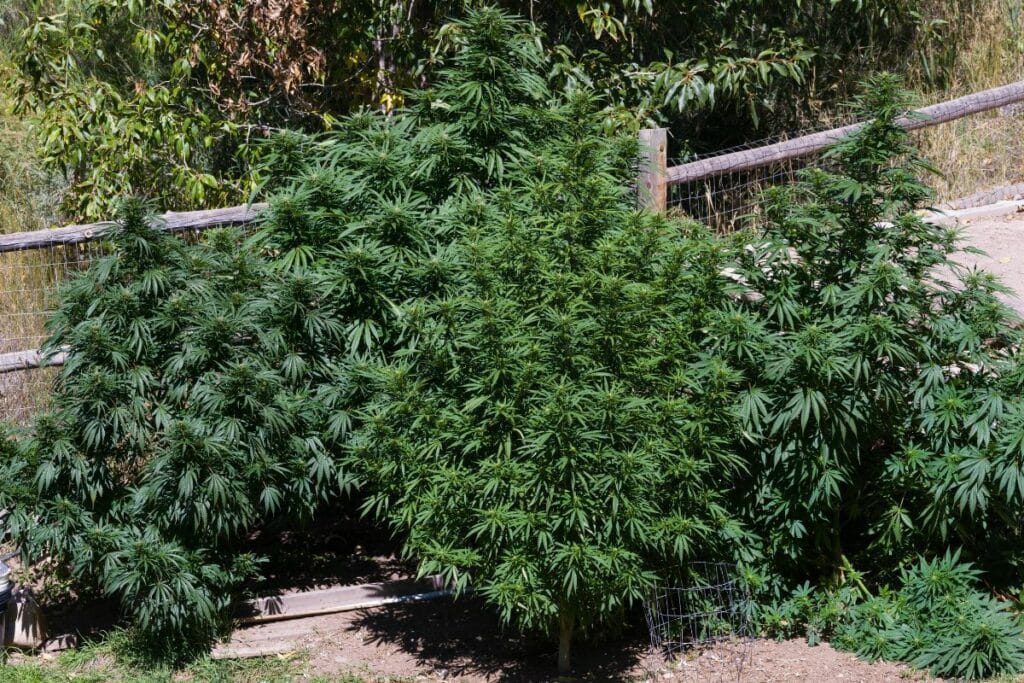
Cultivation and Production of Cannabis
Before diving into the details, it’s important for you to understand that the legal landscape for cannabis, particularly its cultivation and production, is defined by specific state regulations. In Virginia, these laws have a direct impact not only on the legality but also on the local cannabis industry.
Regulations on Cultivation
In Virginia, the production of cannabis plants and products, including those containing tetrahydrocannabinolic acid (THCa), is subject to state laws which have evolved over time. You must be aware that Virginia has passed legislation permitting the production of cannabis, including for medical purposes. The legal threshold for THC in hemp is strict—cultivators must ensure that plants do not exceed 0.3% THC to remain compliant. This includes not only Delta-9 THC but also THCa once it is decarboxylated. Here are some guidelines you should know:
- Obtain a license from the Virginia Board of Pharmacy before cultivating cannabis.
- Ensure crops are tested and below the legal THC limit.
- Comply with all state reporting and record-keeping requirements.
For additional details on these regulations, the legal analysis “First in the South: Cannabis Legalization in Virginia” provides insight into the legal intricacies.
Impact on Local Production
The regulations governing cannabis cultivation have shaped how production operates within Virginia. The introduction of legal frameworks has created opportunities for local businesses and farmers who can now legally grow cannabis, under specific conditions, for medical and other uses. As a part of this local industry, here are some considerations for you:
- Be prepared for the investment in cultivation facilities that meet state regulations.
- Local production has the possibility of boosting the economy by creating new jobs.
- Producers can contribute to research on cannabis and its derivatives, including THCa, leading to innovation in the industry.
For in-depth understanding of the current standards in place and their implications, “Hemp’s Arbitrary 0.3% THC Legal Standard and the Consequences of Applying Such Standard” offers a comprehensive look at the legal thresholds and their impact on the hemp industry in the state.
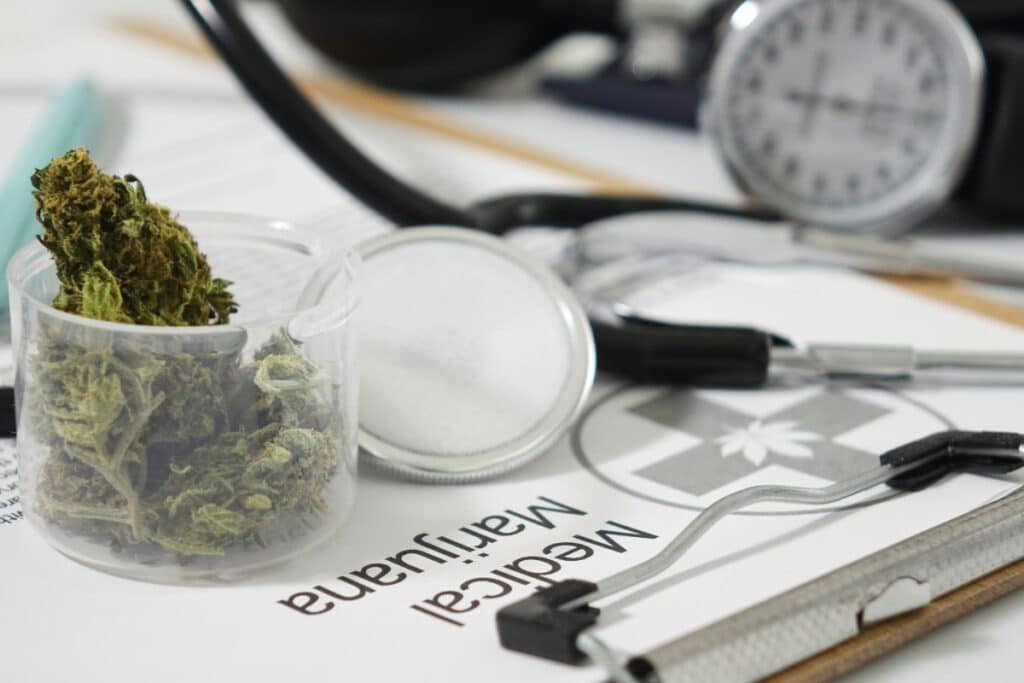
Cannabis for Medicinal Purposes
In Virginia, medical marijuana is carefully regulated to ensure safe access for patients with qualifying conditions. Understanding the legal framework and how it applies to you is critical for utilizing cannabis as part of your medical treatment plan.
Qualifying Conditions for Medical Use
To be eligible for medical marijuana use in Virginia, you must be diagnosed with one or more state-recognized conditions. Notable among these is epilepsy, a condition that can be managed with the help of medical cannabis under the guidance of a healthcare professional. If you have a condition that you believe could benefit from cannabis-based treatment, consulting with a healthcare provider is your first step towards obtaining a medical marijuana card.
Access to Medical Marijuana Dispensaries
Once you have obtained a medical marijuana card, you will have the legal right to visit medical marijuana dispensaries in Virginia. These dispensaries provide a range of cannabis products formulated to address the symptoms associated with your medical condition. Remember, when visiting a dispensary, it’s important to bring your identification and medical marijuana card to ensure compliance with state laws.
Prosecution and Crime Statistics
In Virginia, your actions concerning THCa (tetrahydrocannabinolic acid) are governed by specific regulations that also shape crime statistics within the Commonwealth. Understanding these nuances can help you navigate the legal landscape.
THCa Related Offenses
Virginia has experienced a shift in how it handles the possession and distribution of cannabis-related substances, which includes THCa. As of the information available, THCa is a cannabinoid that exists in the live cannabis plant and it is non-intoxicating. In Virginia, the law primarily focuses on the psychoactive component of cannabis, THC, but regulations surrounding cannabinoids like THCa can affect prosecution outcomes. It’s crucial you are aware that while THCa can convert to THC, mere possession of it in non-intoxicating forms may not necessarily lead to prosecution.
State Crime Data
When reviewing Virginia’s crime data, it’s clear that the Commonwealth’s stance on cannabis has evolved. You may find that as regulations adapt, crime statistics associated with cannabis-related offenses, including those related to THCa, reflect these changes. Maintaining awareness of current laws is key, as is being knowledgeable about implications for both medical and recreational contexts, which can influence Virginia’s legal system’s approach to cannabis-related crime.
Public Opinion and Societal Views
The stance on cannabis legalization, particularly THC, holds significant weight in Virginia’s societal discourse. Your understanding of these variances in public opinion is crucial for interpreting the shifts in policy and societal norms.
General Perceptions on Cannabis Legalization
Public opinion regarding cannabis legalization has evolved with time. You might find it compelling that a majority of Virginians have shown support for the legalization of marijuana, which indicates a shifting perspective towards cannabis and its components such as THCa. This change reflects a growing trend toward acknowledging the potential benefits of cannabis and a movement away from historical stigmas associated with its use.
Influence on Public Policy
Your awareness of the role public opinion plays in shaping public policy is critical. In Virginia, the positive tilt in public perception has influenced legislative action towards more lenient cannabis policies. This evolving consensus within society has the potential to continue impacting legislation, pressing for legal frameworks that accommodate the controlled use of substances like THCa.
Frequently Asked Questions
In understanding the legal landscape of THCa in Virginia, it’s imperative to grasp the specifics. These regulations are nuanced and can often prompt a variety of questions.
What is the legal status of THCa in the state of Virginia?
Virginia has now established a policy that supports a controlled market for cannabis, which implicitly includes its constituents like THCa. You can legally purchase cannabis for personal use from regulated sources within the state.
Does the federal legality of THCa differ from Virginia state laws?
While Virginia has specific laws regarding cannabis, federal laws still classify THC and its analogs as Schedule I substances. However, pure THCa is not psychoactive unlike THC and may be treated differently under certain conditions.
Can products containing THCa be legally purchased in Virginia?
As per the Virginian policy on cannabis, consumers can purchase cannabis products from safe, regulated sources. This extends to products containing THCa, which are available in a legally controlled market.
Are there any potential psychoactive effects associated with THCa?
THCa itself is not psychoactive. However, it is a precursor to THC and can convert to it through decarboxylation, which involves applying heat. THC is known for its psychoactive effects.
How is THCa classified in comparison to Delta 8 substances?
Delta 8 is a minor cannabinoid found in the hemp plant and is psychoactive. While Delta 8 THC is federally legal if derived from hemp, THCa, by contrast, is the non-psychoactive acidic form of THC, and its legal status depends on state-specific cannabis laws.
What are the regulations surrounding the use of hemp-derived THCa in Virginia?
In Virginia, hemp-derived products must conform to the legal standard that distinguishes them from marijuana. This standard hinges on a THC concentration of no more than 0.3% on a dry weight basis. Thus, hemp-derived THCa in compliance with this threshold is legal in Virginia.

